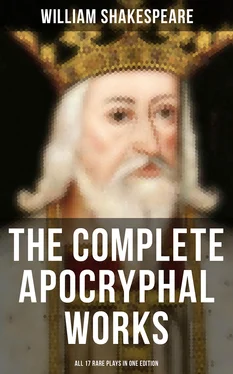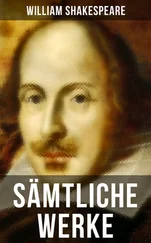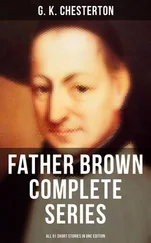Knight.
I am sorry I ere knew him,
That ever he took life and natural being
From such an honoured stock, and faira descent;
Til this black minute without stain or blemish.
1 GENTLEMAN. Here come the men.
[Enter the master of the college and the rest, with the prisoner.]
KNIGHT.
The serpent of his house! I’m sorry
For this time that I am in place of justice.
MASTER.
Please you, Sir.
KNIGHT.
Do not repeat it twice I know too much,
Would it had ne’er been thought on:
Sir, I bleed for you.
1 GENTLEMAN. Your fathers sorrows are alive in me: What made you shew such monstrous cruelty?
HUSBAND. In a word, Sir, I have consumd all, played away long acre, and I thought it the charitablest deed I could do to cussen beggery and knock my house oth head.
KNIGHT.
Oh, in a cooler blood you will repent it.
HUSBAND.
I repent now, that ones left unkild,
My brat at nurse. Oh, I would full fain have weand him.
KNIGHT.
Well, I do not think but in to morrows judgement,
The terror will sit closer to your soul,
When the dread thought of death remembers you;
To further which, take this sad voice from me:
Never was act played more unnaturally.
HUSBAND.
Thank you, Sir.
KNIGHT.
Go, lead him to the Jail:
Where justice claims all, there must pity fail.
HUSBAND.
Come, come, away with me.
[Exit prisoner.]
MASTER.
Sir, you deserve the worship of your place.
Would all did so: in you the law is grace.
KNIGHT.
It is my wish it should be so.—Ruinous man,
The desolation of his house, the blot
Upon his predecessors honord name!
That man is nearest shame that is past shame.
[Exit.]
SCENE X. Before Calverly Hall.
[Enter Husband with the officers, The Master and gentlemen, as going by his house.]
HUSBAND. I am right against my house, seat of my Ancestors: I hear my wife’s alive; but much endangered. Let me intreat to speak with her, before the prison gripe me.
[Enter his wife, brought in a chair.]
GENTLEMAN.
See here she comes of her self.
WIFE.
Oh my sweet Husband, my dear distressed husband,
Now in the hands of unrelenting laws!
My greatest sorrow, my extremest bleeding,
Now my soul bleeds.
HUSBAND.
How now? kind to me? did I not wound thee, left thee for dead?
WIFE.
Tut, far greater wounds did my breast feel:
Unkindness strikes a deeper wound than steel;
You have been still unkind to me.
HUSBAND.
Faith, and so I think I have:
I did my murthers roughly, out of hand,
Desperate and sudden, but thou hast deviz’d
A fine way now to kill me, thou hast given mine eyes
Seven wounds a piece; now glides the devil from me,
Departs at every joint, heaves up my nails.
Oh catch him new torments, that were near invented,
Bind him one thousand more, you blessed Angels,
In that pit bottomless; let him not rise
To make men act unnatural tragedies,
To spread into a father, and in fury,
Makes him his childrens executioners:
Murder his wife, his servants, and who not?
For that man’s dark, where heaven is quite forgot.
WIFE.
Oh my repentant husband.
HUSBAND.
My dear soul, whom I too much have wrongd,
For death I die, and for this have I longd.
WIFE.
Thou sholdst not (be assurde) for these faults die,
I ft he law could forgive as soon as I.
HUSBAND.
What sight is yonder?
[Children laid out.]
WIFE.
Oh, our two bleeding boys
Laid forth upon the thresholds.
HUSBAND.
Here’s weight enough to make a heartstring crack.
Oh, were it lawful that your pretty souls
Might look from heaven into your fathers eyes,
Then should you see the penitent glasses melt,
And both your murthers shoot upon my cheeks;
But you are playing in the Angels laps,
And will not look on me,
Who void of grace, kild you in beggery.
Oh that I might my wishes now attain,
I should then wish you living were again,
Though I did beg with you, which thing I feard:
Oh, twas the enemy my eyes so bleard.
Oh, would you could pray heaven me to forgive,
That will unto my end repentant live.
WIFE.
It makes me e’en forget all other sorrows
And live apart with this.
OFFICER.
Come will you go?
HUSBAND.
I’ll kiss the blood I spilt and then I go:
My soul is bloodied, well may my lips be so.
Farewell, dear wife, now thou and I must part,
I of thy wrongs repent me with my heart.
WIFE.
Oh stay, thou shalt not go.
HUSBAND.
That’s but in vain, you see it must be so.
Farewell, ye bloody ashes of my boys!
My punishments are their eternal joys.
Let every father look into my deeds,
And then their heirs may prosper, while mine bleeds.
WIFE.
More wretched am I now in this distress,
[Exeunt Husband with holberds.]
Then former sorrows made me.
MASTER.
Oh kind wife,
Be comforted. One joy is yet unmurdered:
You have a boy at nurse; your joy’s in him.
WIFE.
Dearer then all is my poor husbands life:
Heaven give my body strength, which yet is faint
With much expence of blood, and I will kneel,
Sue for his life, number up all my friends,
To plead for pardon for my dear husbands life.
MASTER.
Was it in man to wound so kind a creature?
I’ll ever praise a woman for thy sake.
I must return with grief; my answer’s set:
I shall bring news ways heavier then the debt.—
Two brothers: one in bond lies overthrown,
This on a deadlier execution.
THE END
THE LAMENTABLE TRAGEDY OF LOCRINE
Table of Contents Table of Contents ARDEN OF FAVERSHAM A YORKSHIRE TRAGEDY THE LAMENTABLE TRAGEDY OF LOCRINE MUCEDORUS THE KING’S SON OF VALENTIA, AND AMADINE, THE KING’S DAUGHTER OF ARRAGON. THE LONDON PRODIGAL THE PURITAINE WIDDOW THE SECOND MAIDEN’S TRAGEDY SIR JOHN OLD CASTLE LORD CROMWELL KING EDWARD THE THIRD EDMUND IRONSIDE SIR THOMAS MORE FAIRE EM A FAIRY TALE IN TWO ACTS THE MERRY DEVILL OF EDMONTON THOMAS OF WOODSTOCK
By William Shakespeare
The eldest son of King Brutus, discoursing the wars of the
Britains and Huns, with their discomfiture, the Britain’s
victory with their accidents, and the death of Albanact.
Play attributed in part to William Shakespeare.
DRAMATIS PERSONAE.
BRUTUS, King of Britain.
LOCRINE, his son.
CAMBER, his son.
ALBANACT, his son.
CORINEIUS, brother to Brutus.
ASSARACHUS, brother to Brutus.
THRASIMACHUS, brother to Brutus.
DEBON, an old Officer.
HUMBER, King of the Scythians.
HUBBA, his son.
THRASSIER, a Scythian Commander.
STRUMBO, clown.
TRUMPART, clown.
OLIVER, clown.
WILLIAM, clown.
GWENDOLINE, Corineius his Daughter, married to Locrine.
ESTRILD, Humber’s Wife.
ATE, the Goddess of Revenge.
Ghosts of Albanact, and Corineius.
ACT I.
PROLOGUE.
Enter Ate with thunder and lightning all in black, with a burning torch in one hand, and a bloody sword in the other hand, and presently let there come forth a Lion running after a Bear or any other beast; then come forth an Archer who must kill the Lion in a dumb show, and then depart. Remain Ate.
ATE.
In paenam sectatur & umbra.
A Mighty Lion, ruler of the woods,
Of wondrous strength and great proportion,
Читать дальше












![Уильям Шекспир - The Works of William Shakespeare [Cambridge Edition] [Vol. 1 of 9]](/books/746589/uilyam-shekspir-the-works-of-william-shakespeare-c-thumb.webp)